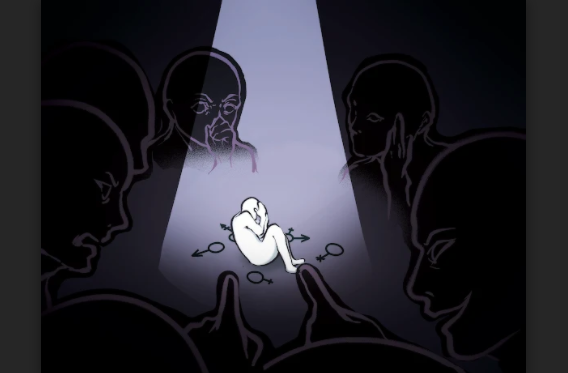
Illustration by Samantha Mandujano, Chief Illustrator & Staff Writer
Article by Max Coffrin, Guest Writer
For transgender and non-conforming indivduals, the world around them is far more dangerous than it may appear for others.
Over half of transgender or gender non-conforming youth say they have been mocked by their family for their identity, according to The Human Rights Campaign (HRC) Foundation’s “Dismantling a Culture of Violence,” a Washington
D.C. based nonprofit organization of more than 3 million members that supports LGBTQ+ individuals, allies, and institutions with resources via a set of comprehensive programs.
Izack Kessler, a junior at Indian Trail who identifies as non-binary, talks about his experiences and how he believes people can begin to help dismantle stigmas and hate surrounding these topics.
“I’m thankful to be in a family that isn’t against me at least,” he said, when asked about his experiences with family and friends during their transition.
“I have come out to my friends, and they are very accepting. My parents, on the other hand, refused to believe me and thought that I was just confused,” said an Indian Trail junior who identifies as agender and has requested anonymity.
Since HRC began keeping track of transgender deaths in 2013, 2021 has been the deadliest year for this group with 47 deaths so far.
Hate and violence against these individuals has continued to rise throughout the years. Learning from trans and gender non-conforming people about how to prevent this and get educated is more important than ever.
“I would give advice to others to just be kind and accepting, even if they are confused about the topic,” the junior said, on how others can help support someone during their transition.
“Advice I’d give is just listen, because listening helps so much… And learning from what they have to say really can benefit people who are transitioning,” Kessler said.
Around 13% of the trans community reports having professionals try to stop them from being transgender, and about 84% of trans youth don’t feel safe in a classroom setting. Advocates for the community say that listening to transgender voices and gender non-conforming individuals about their specific needs can begin to promote change for everyone.
About 13% of the trans community reports having professionals try to stop them from being transgender. About 84% of trans youth don’t feel safe in a classroom setting.
